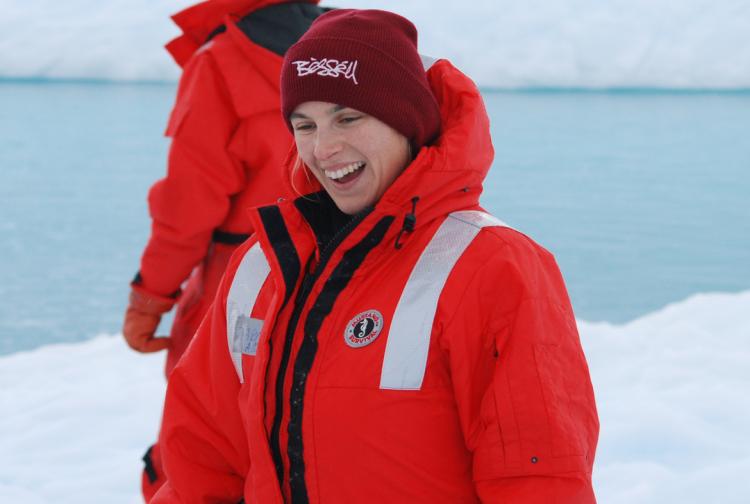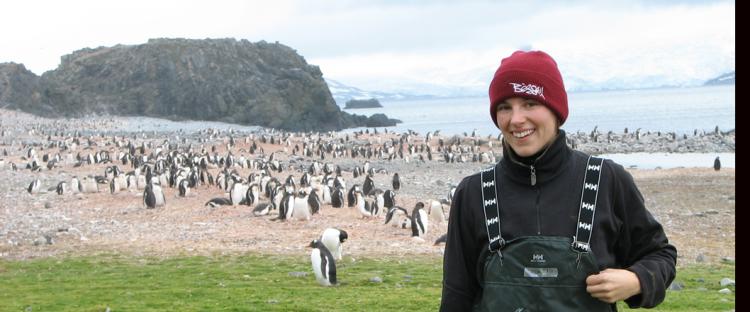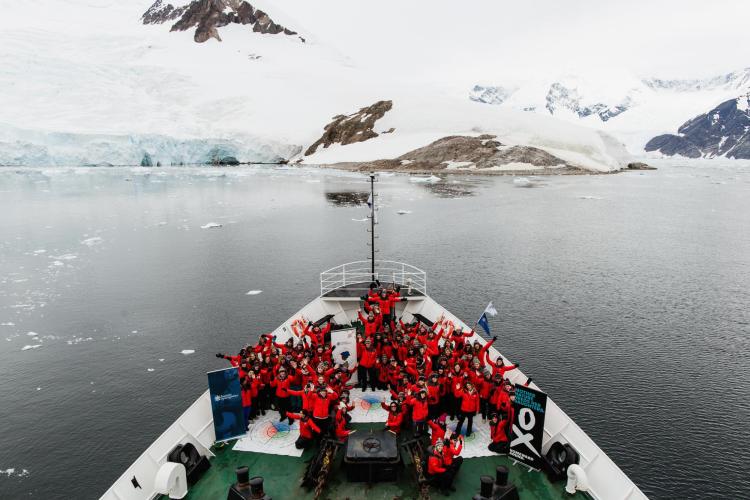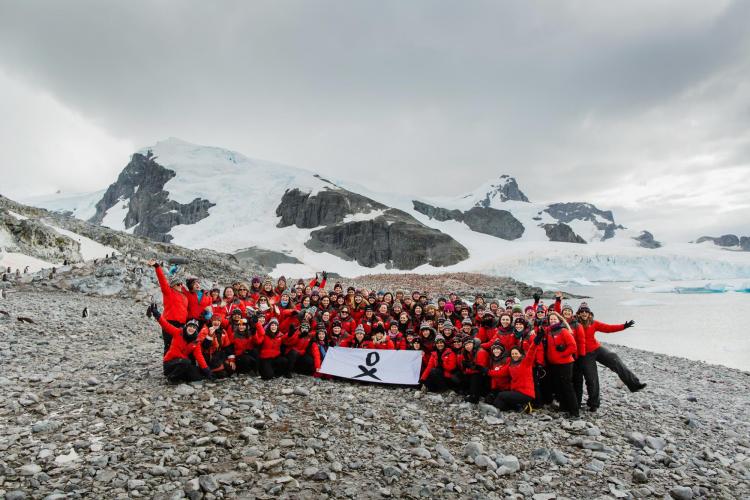CU Boulder prof and 100 women set sail for Antarctica
With the motto ‘Mother Nature needs her daughters,’ group aims to support women working in STEMM in the hope of better sustaining Earth and its people
Cassandra Brooks has spent much of her life studying and working to preserve Antarctica.
Now, she’s sharing her love and knowledge of the southernmost continent with a group of 100 intrepid women seeking to become global leaders in environmental sustainability.
Brooks, a University of Colorado Boulder assistant professor of environmental studies, is serving as a faculty member on a three-week Antarctic expedition organized by Homeward Bound Project, a worldwide initiative that began in 2016 to “heighten the influence and impact of women in making decisions that shape our planet,” according to the organization.

So far, three cohorts of women have successfully participated in Homeward Bound Project’s 12-month leadership program and traveled to Antarctica. The participants, who applied to the program from all over the world, are at various stages in their careers in science, technology, engineering, math and medicine (STEMM).
All told, Homeward Bound Project wants 1,000 women to participate in the program and visit Antarctica by 2026.
Brooks is part of the fourth cohort, which has 100 participants and 12 faculty members (Homeward Bound Project says this trip is the largest women-only expedition to Antarctica). She’ll spend approximately three weeks with the group, which spent several days in Ushuaia, Argentina, before departing for Antarctica aboard a ship.
Cassandra Brooks, a University of Colorado Boulder assistant professor of environmental studies.
During their time at sea, the women are participating in workshops focused on leadership, visibility, strategy and science.
“How do the women become better leaders, become more visible?” said Brooks. “A lot of it will focus on women taking a deep dive and learning about who they are. It’s this idea of authenticity and knowing who you are and not trying to lead in the way that someone else might lead, but really knowing your own strengths.”
Weather permitting, the group is also exploring the continent and spend time learning about topics such as Antarctic science bases and penguin colonies.

Cassandra Brooks standing next to a penguin crop while serving as a faculty member on a three-week Antarctic expedition organized by Homeward Bound Project.
As a science faculty member on the trip, Brooks is charged with educating the women about the Antarctic environment and helping them prepare mini science presentations about themselves and their work. Other faculty members onboard the ship specialize in leadership, strategy, personal well-being and visibility in STEMM fields.
Brooks, who joined the CU Boulder environmental studies faculty in 2017, has worked on Antarctic science and conservation for the last 15 years in varying roles ranging from marine science to outreach to policy. Along with other scientists and advocates, Brooks and her husband, John Weller, a photographer and filmmaker, helped to protect 598,000 square miles of the Ross Sea off Antarctica, creating the world’s largest marine preserve in 2017.

The group of 100 intrepid women seeking to become global leaders in environmental sustainability while on a three-week Antarctic expedition organized by Homeward Bound Project.
“It’s been an essential part of my life for a long time, this profoundly beautiful place,” Brooks said of Antarctica.
With her interdisciplinary background, Brooks was drawn to CU Boulder by its multi-faceted environmental studies program after earning her doctorate from Stanford in 2017.
“The department is fantastic, they truly value interdisciplinary work and people who have blended backgrounds and can bring that diverse perspective to the world,” she said.

The group of 100 intrepid women seeking to become global leaders in environmental sustainability while on a three-week Antarctic expedition organized by Homeward Bound Project.

